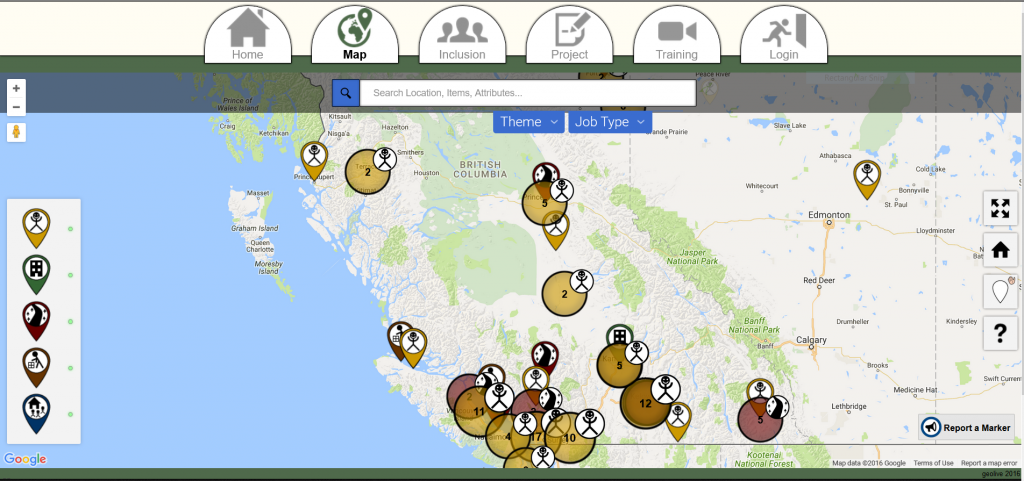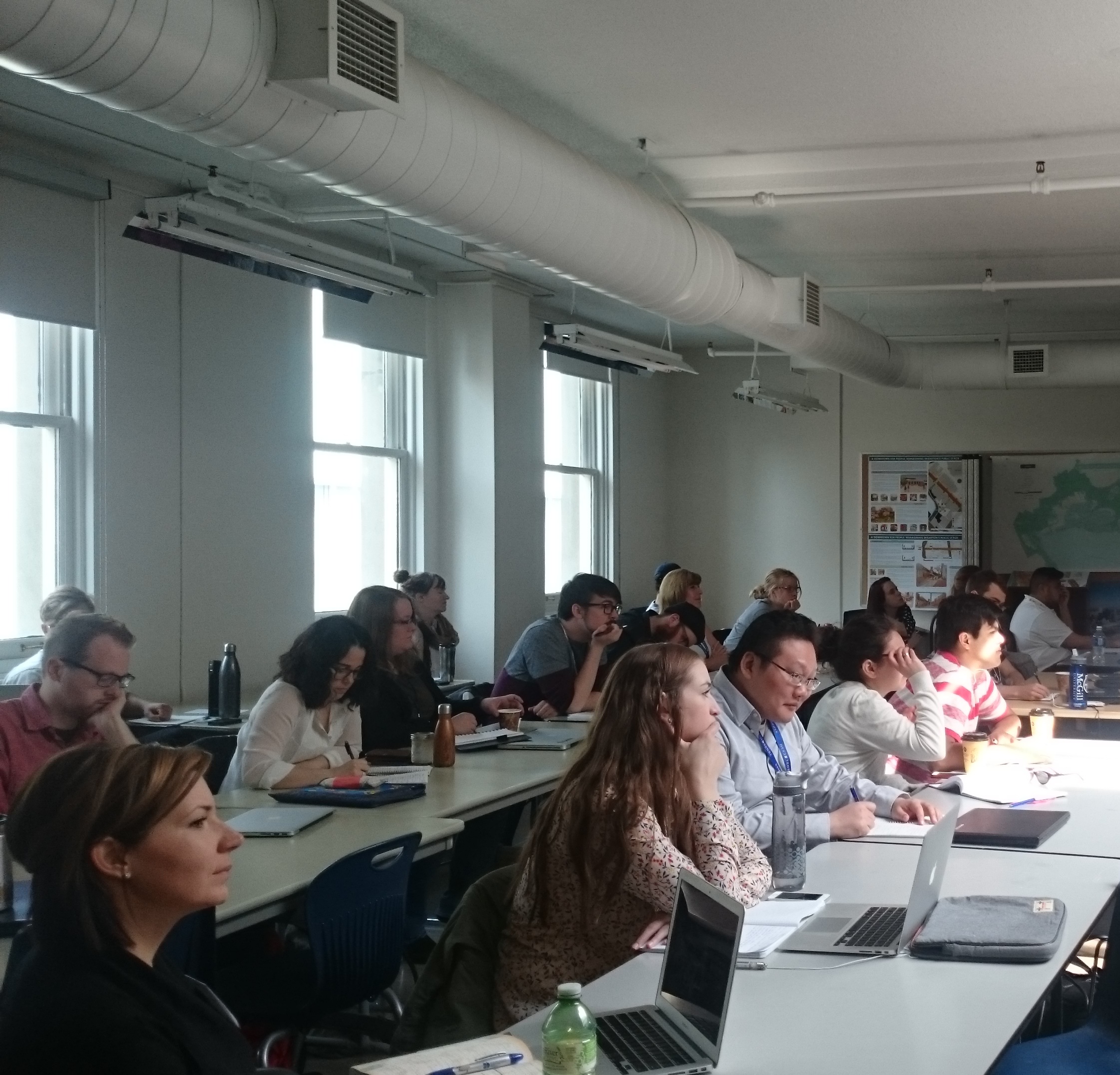By Logan Cochrane, Mark Gill, Jon Corbett
The participatory geoweb has the potential to transform relations of power – who contributes and names places, what is excluded and labeled. This transformation can occur through newfound opportunities for engagement and giving voice to spatially relevant issues. In the 1990s, GIScience recognized this potential and made explicit the importance that social issues would, and should take within the discipline and practice. Geothink did likewise, making social justice one of its key themes. While Web 2.0 and the geoweb has promised greater forms of equality, particularly through supporting user generated content, we know that maps remain value-laden, and are embedded with particular power relations that are not necessarily equally distributed. Social justice is a term that describes the equitable distribution of resources, opportunities, and privileges within society. Amidst the Web 2.0 enthusiasm, we were interested in how issues of social justice are being addressed within the context of the geoweb in academic literature. You might be surprised what we found.
We first set out to take stock of the current state of GIScience literature (Cochrane et al, 2016). Using the ten most highly ranked academic journals by GIScientists. We assessed ten years of literature. We narrowed the more than 14,000 articles published from 2005 to 2014 to those having some relationship to the geoweb and/or crowdsourcing, using broad and inclusive terms. Of the resulting sub-set, we searched for social justice, and terms related to it, for example empowerment. We found that only three articles engaged explicitly with social justice . Even more surprising, terms related to social justice (empowerment, marginalization, social change, environmental justice, spatial justice, etc), were limited to the marginal periphery of these top tier journals. In other words, these ideas tended not to be the main content of the research. We argue that GIScience runs the risk of missing important insights , as mapmakers around the world are engaged in practice, but ignored in top tier GIScience journals.
Finding that social justice was more likely to be a footnote than a substantial focus of the research endeavour or engagement, we then wondered about empowerment. We had searched for it in the original article, but wanted to expand the search (adding ten more years of journals, 1996-2014, and using an open search rather than specific journals) and go into more detail (Corbett, Cochrane and Gill, 2016). Empowerment is of particular interest for GIScience because so many assume the use of the participatory geoweb results in empowerment. While the usage of the term has increased with time, the concept was consistently ill-defined and insufficiently measured. Amazingly, almost one quarter (24%) of the articles that mentioned “empowerment” were not included in the main text, but in places such as the works cited list or an endnote. Even of those that did engage with the concept in a substantial way, only a minority defined the term, fewer still explained how they measured it, and only five listed the specific metrics. We argue that researchers should make a greater effort to adequately define what they mean by “empowerment” and provide a way to actually assess how projects are providing that particular empowerment.
These two papers act as key reference points for those interested in the participatory geoweb. While our papers do not negate the potential for positive impacts, they highlight the fact that research commonly does not engage with social justice, and when terms like empowerment are used, they are often not defined or cannot justify claims of positive impact. As Web 2.0 technologies encourage people to take part in creating knowledge, through maps or otherwise, we need researchers to study how participatory and crowdsourcing approaches to map making intersect with issues of social justice. Based on these findings, we hope to draw attention to this important aspect of GIScience which has long been identified as a crucial area of research.

Dr. Corbett’s research team are tackling issues of empowerment via the geoweb and have developed tools such as GeoLive
For more information, see the two papers this post was based on:
Cochrane, L., Corbett, J., Evans, M. and Gill, M. 2016. Searching for Social Justice in GIScience Publications. Cartography and Geographic Information Science http://dx.doi.org/10.1080/15230406.2016.1212673
Corbett, J., Cochrane, L. and Gill, M. 2016. Powering Up: Revisiting Participatory GIS and Empowerment. The Cartographic Journal http://dx.doi.org/10.1080/00087041.2016.1209624
